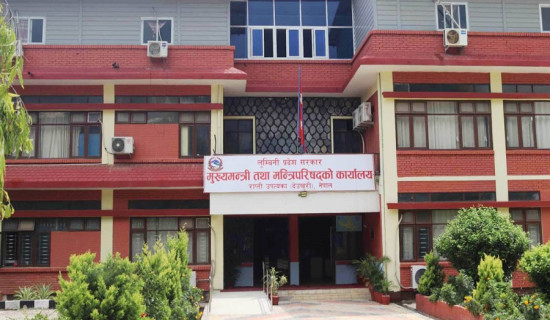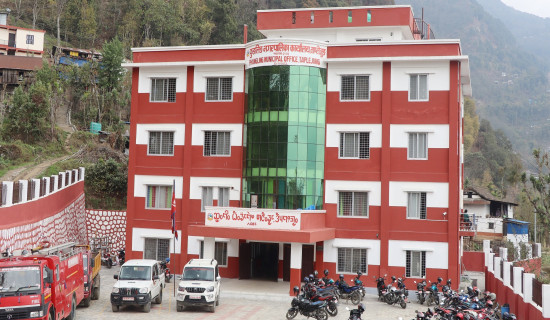- Wednesday, 27 November 2024
Winter Preparedness
With the onset of winter, it is imperative for the state to ensure the safety and well-being of the vulnerable communities. It must give priority to arrange preparedness and adopt proactive measures to protect the citizens from the freezing cold. The underprivileged and displaced population, affected by the natural disasters such as floods and landslides, must not be left out in the cold as they have been enduring hardships for years. The Central Disaster Management and Volunteer Service Department has called for the urgent need for enhanced preparedness, particularly in the Tarai and other cold-affected regions. The Department's timely appeal should impel the authorities to swing into action to save the citizens from the winter hazards.
The government’s commitment to address these challenges is encouraging, but the focus should be on materialising plans into immediate and effective action. Cold waves inflict sufferings and become killers, especially among the poor, elderly, children, and those already displaced by natural calamities every year. Also, the cold waves can cause great damage to crops and livestock. This recurring problem needs a comprehensive preparedness and response. Immediate measures are very essential. Distributing essential supplies such as blankets, warm clothing, and firewood to affected areas should be a priority. Emergency shelters, particularly for those displaced by monsoon floods and landslides, need to be equipped with proper insulation and heating facilities.
Also, healthcare systems should be prepared to address cold-related illnesses such as pneumonia, influenza and fever, which often increase during this season. Long-term solutions are equally important. The repeated hardships caused by cold spells point to systemic gaps in disaster preparedness. Strengthening local disaster response mechanisms, investing in weather-resilient housing, and ensuring the timely allocation of resources are necessary steps to mitigate the impact of extreme cold conditions. These measures provide relief and also build resilience for the future. Raising public awareness of winter safety is another vital component of preparedness. Educating communities on simple precautions, such as wearing warm clothes, staying hydrated, and recognising symptoms of cold-related health issues, can help reduce preventable risks.
Collaborations between local governments, community leaders and organisations can amplify these efforts and ensure that information reaches even remote areas in time. The recent drop in temperatures highlights the urgency of the situation. With sub-zero readings in the mountainous regions and rising and falling temperatures across the Tarai and urban centres like Kathmandu, the cold is already impacting daily life. Meteorological forecasts of light snowfall and increased cloud cover add to the urgency for swift action. The ruling parties' call to address these issues comes at a critical time. The government’s assurance of forwarding concerns to relevant authorities is a positive step.
Also, the government should focus on the effectiveness and timeliness of the response. Delays in providing relief or mobilising resources will only worsen the hardships faced by already-suffering populations. The winter season presents a challenge that demands both immediate and sustained efforts. By prioritising preparedness, ensuring efficient resource distribution, and addressing systemic vulnerabilities, the government can alleviate the sufferings caused by the cold. Community collaboration and strength of governance can be demonstrated at a time of crisis.
















